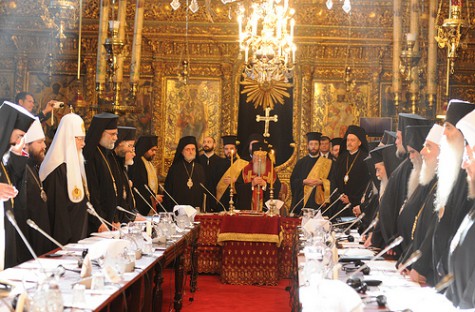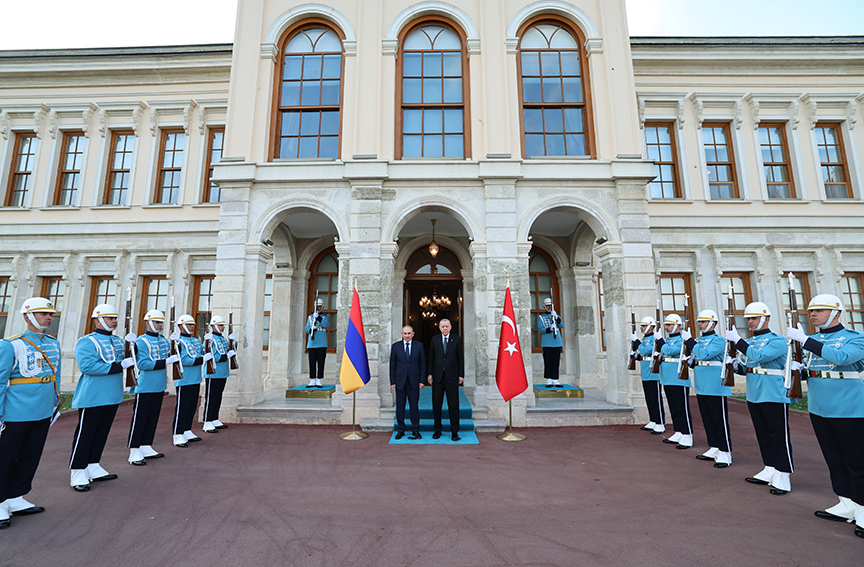Following strenuous negotiations, the European Union has finally approved its seven-year budget covering years 2014-2020. As no item exists in the budget concerning Turkey’s possible membership, it has become official for Turkey that the European Union will continue as a fortress closed to the outside world for the next seven years, the Schengen barbed wire erected, with all its ugliness, along the River Maritsa will continue to delineate the borders of fortress Europe and the European Union will not be unifying and inclusive for the continent of Europe, but will be discriminatory and exclusionary. For Turkey, whose place as a Balkan and European country cannot be debated in terms of its historical, geographical, social and cultural ties, the European Union’s approach with emotional and subjective undertones and possibly with religious zealotry is upsetting. Worse still, it not only creates disappointment but also reveals how the concept of “European values’, attributed with moral high ground can be manipulated and is open to misuse in an arbitrary manner. Turkey is also a Eurasian country at the nexus of Europe and Asia. The EU’s approach cannot change this fact. On the other hand, in line with the shifting of global economic and political gravity towards Asia, it inevitably spurs for additional acceleration to Turkey’s opening to Asia. It would be narrow-minded and misleading to base Turkey’s opening to Eurasia as a reaction towards the EU. Turkey’s using its full potential of its location in Eurasia could also enable her to open new horizons not only for the EU, but also for further cooperation with the global power ally, the US. In the Pacific, which can be defined as the Far East, Turkey’s option to establish cooperation with the developing economies there, to start with China, this opening could commence with galvanizing and mobilizing the capacity of the Economic Cooperation Organization (ECO), formed by ten countries in near east Asia, in other words, in central and western Asia. With this initiative, Iran could be engaged into cooperation from isolation, Afghanistan and Pakistan become economically active in the region, Central Asia and the Caucasus join the global economy. ECO, currently chaired by Azerbaijan is an established organization possessing the infrastructure and experience necessary in overcoming the short term difficulties that could arise from the political conjuncture and could be assisted by Turkey, a founding member, through its creative initiatives. At this newly emerging era, the European Union and its Western allies’ support to Turkey, also taking into consideration Turkey’s global responsibilities assumed with its G-20 membership, would no doubt contribute to the reestablishing of the new global balances devoid of conflict.
© 2009-2025 Center for Eurasian Studies (AVİM) All Rights Reserved
No comments yet.
-
 A HUMBLE REMINDER TO THE SECRETARY GENERAL OF NATO IN VIEW OF THE MOTION ADOPTED BY THE GERMAN PARLIAMENT
A HUMBLE REMINDER TO THE SECRETARY GENERAL OF NATO IN VIEW OF THE MOTION ADOPTED BY THE GERMAN PARLIAMENT
Alev KILIÇ 14.06.2016 -
THE PROPOSAL TO OPEN THE ARCHIVES TO THE JOINT RESEARCH OF TURKISH, ARMENIAN AND IMPARTIAL SPECIALISTS, SCHOLARS AND HISTORIANS IS STILL VALID
Alev KILIÇ 21.12.2012 -
THE TRANS-ADRIATIC NATURAL GAS PIPELINE (TAP)
Alev KILIÇ 05.10.2012 -
THE BURNING DOWN OF IZMIR AND ANOTHER DILEMMA WITH THE ARMENIAN ALLEGATIONS
Alev KILIÇ 14.12.2012 -
G-8, BRICS and G-20 , COMPETITION AMONG GLOBAL ECONOMIC INSTITUTIONS
Alev KILIÇ 19.06.2013
-
 ORTHODOX COUNCIL TO MEET AFTER 1200 YEARS
ORTHODOX COUNCIL TO MEET AFTER 1200 YEARS
Mehmet Oğuzhan TULUN 09.04.2014 -
THE BALKANS – EU – TURKEY
Alev KILIÇ 03.10.2012 -
 THE AZERBAIJAN-ARMENIA PEACE PROCESS AND THE IMPACTS OF LOBBIES
THE AZERBAIJAN-ARMENIA PEACE PROCESS AND THE IMPACTS OF LOBBIES
Tuğçe TECİMER 18.12.2024 -
 PASHINYAN'S WORKING VISIT: A STEP FORWARD IN THE TÜRKİYE-ARMENIA NORMALIZATION PROCESS
PASHINYAN'S WORKING VISIT: A STEP FORWARD IN THE TÜRKİYE-ARMENIA NORMALIZATION PROCESS
Tuğçe TECİMER 27.06.2025 -
THE NEW POPE AND THE ARMENIAN GENOCIDE ALLEGATIONS
Ömer Engin LÜTEM 10.06.2013
-
25.01.2016
THE ARMENIAN QUESTION - BASIC KNOWLEDGE AND DOCUMENTATION -
12.06.2024
THE TRUTH WILL OUT -
27.03.2023
RADİKAL ERMENİ UNSURLARCA GERÇEKLEŞTİRİLEN MEZALİMLER VE VANDALİZM -
17.03.2023
PATRIOTISM PERVERTED -
23.02.2023
MEN ARE LIKE THAT -
03.02.2023
BAKÜ-TİFLİS-CEYHAN BORU HATTININ YAŞANAN TARİHİ -
16.12.2022
INTERNATIONAL SCHOLARS ON THE EVENTS OF 1915 -
07.12.2022
FAKE PHOTOS AND THE ARMENIAN PROPAGANDA -
07.12.2022
ERMENİ PROPAGANDASI VE SAHTE RESİMLER -
01.01.2022
A Letter From Japan - Strategically Mum: The Silence of the Armenians -
01.01.2022
Japonya'dan Bir Mektup - Stratejik Suskunluk: Ermenilerin Sessizliği -
03.06.2020
Anastas Mikoyan: Confessions of an Armenian Bolshevik -
08.04.2020
Sovyet Sonrası Ukrayna’da Devlet, Toplum ve Siyaset - Değişen Dinamikler, Dönüşen Kimlikler -
12.06.2018
Ermeni Sorunuyla İlgili İngiliz Belgeleri (1912-1923) - British Documents on Armenian Question (1912-1923) -
02.12.2016
Turkish-Russian Academics: A Historical Study on the Caucasus -
01.07.2016
Gürcistan'daki Müslüman Topluluklar: Azınlık Hakları, Kimlik, Siyaset -
10.03.2016
Armenian Diaspora: Diaspora, State and the Imagination of the Republic of Armenia -
24.01.2016
ERMENİ SORUNU - TEMEL BİLGİ VE BELGELER (2. BASKI)
-
AVİM Conference Hall 24.01.2023
CONFERENCE TITLED “HUNGARY’S PERSPECTIVES ON THE TURKIC WORLD"









